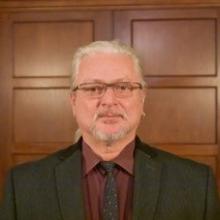For 30 years, Kağan Arık has taught Turkish and Turkic Languages and Literature. He has experience as an anthropologist in Central Asia, publishing work on the culture of the Kazak nomads in China, the oral literature of the Kirghiz, and on traditional healing among the Turkic peoples. His regional languages include Turkish, Kazak, Uzbek, Kyrgyz, Tatar, Turkmen, Azeri, Tuvan, Altai, Persian/Tajik, and Chinese. Arık is the Ayaslı Instructional Professor and Coordinator for the Modern Turkish language program at the University of Chicago
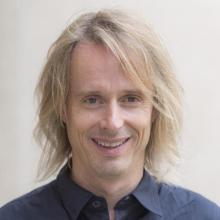
Niall Atkinson’s research focuses on the experience of architecture and urban space in early modern Italy to understand the build environment as a collective social construction of the body’s sensorial apparatus. His recent work has explored the relationship between sound, space, and architecture, and their role in the construction of civic society, culminating in the publication of The Noisy Renaissance: sound, architecture, and Florentine urban life (Penn State University Press, 2016). Atkinson also experiments with digital technologies to spatialize the demographic data contained in the 1427 tax census of Florence (catasto) into an interactive geographic platform. He is Associate Professor in the Departments of Art History and Romance Languages and Literatures at the University of Chicago.
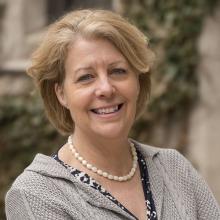
Since 2013, Catherine C. Baumann has directed the Chicago Language Center (CLC) and has dramatically expanded its programs. She currently leads two grants, “Transforming Language Instruction,” from the Mellon Foundation, and the “Language Pedagogy Innovation Initiative,” from the Provost’s office. Both support innovation in language pedagogy through an assessment-driven reverse design approach. Baumann is a contributor to many academic publications and is frequently asked to consult for language programs in higher education on many curricular and assessment-related issues.

Nicole G. Burgoyne develops and implements intermediate and advanced German language courses. She teaches topics ranging from fairy tales and folklore to contemporary politics and the culture of German-speaking countries from the Cold War to the present. The organizer of an exploratory teaching group on developing language courses based on domain analysis, Burgoyne is active in developing innovative language assessments for undergraduate and graduate students. She is Assistant Instructional Professor in the Department of Germanic Studies at the University of Chicago.
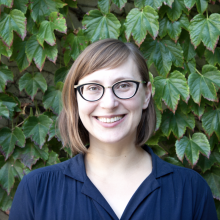
Orianna Cacchione’s curatorial practice is committed to expanding the canon of contemporary art to respond to the global circulations of art and ideas. At the Smart Museum, Cacchione has curated the exhibitions, The Allure of Matter: Material Art from China with UChicago Professor Wu Hung, which interrogated how materiality informs contemporary Chinese art; Samson Young: Silver moon or golden star, which will buy of me?; and Tang Chang: The Painting that Is Painted with Poetry Is Profoundly Beautiful. Her writing has been published in the Journal of Art Historiography, Yishu, and the Journal of Contemporary Chinese Art. Cacchione is Curator of Global Contemporary Art at the Smart Museum of Art and Lecturer in the Department of Art History at the University of Chicago.
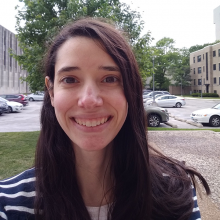
Carmen Jaramillo Caswell assists faculty in using digital technologies to enhance humanities research. Their focuses include the creation of text corpora, text processing, optical character recognition, digital mapping, data management, and digital curation. They have also assisted in the creation of web-based archives and resources, including the South Side Home Movie Project and the East Asian Scroll Paintings Project, and served on the committee for the Chicago Colloquium in Digital Humanities and Computer Science. Caswell is the Digital Humanities Research Liaison at the University of Chicago.
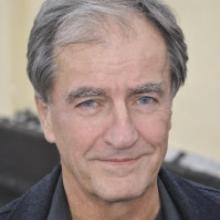
James Chandler’s books include England in 1819 (University of Chicago Press, 1998), a study of literary historicism and its limits that won the Laing Prize at University of Chicago Press in 2000; An Archaeology of Sympathy: The Sentimental Mode in Literature and Cinema (University of Chicago Press, 2013), which traces the formal foundations of modern narrative cinema to the early sentimental movement in literature and moral philosophy; and Doing Criticism: Across Literary and Screen Arts (Wiley-Blackwell, 2022). He is currently working on a new book titled “Figures in a Field: Wordsworth and Edgeworth.” Chandler is the William K. Ogden Distinguished Service Professor in the Departments of English Language and Literature and Cinema and Media Studies at the University of Chicago.
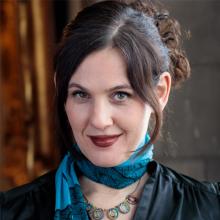
Rachel DeWoskin is the award-winning author of five novels: Someday We Will Fly (Penguin Random House, 2019); Banshee (Dottir Press, 2019); Blind (Penguin Random House, 2015); Big Girl Small (FSG, 2011); Repeat After Me (The Overlook Press, 2009); and the memoir Foreign Babes in Beijing (WW Norton, 2005), about the years she spent in Beijing as the unlikely star of a Chinese soap opera. In 2020, DeWoskin's poetry collection, Two Menus, was published by the University of Chicago Press's Phoenix Poetry Series. Her awards include the National Jewish Book Award, Sydney Taylor Book Award, American Library Association's Alex Award, and Academy of American Poets Award. Three of her books, Foreign Babes in Beijing, Banshee, and Someday We Will Fly, are being developed for television. Her poems, essays, and articles have appeared in journals and anthologies including the New Yorker, Vanity Fair, Ploughshares, and New Voices from the Academy of American Poets. DeWoskin is an Associate Professor of Practice in the Arts in the Creative Writing Program in the Department of English Language and Literature and an affiliated faculty member in Jewish Studies, East Asian Studies, and the Center for the Study of Gender and Sexuality at the University of Chicago.
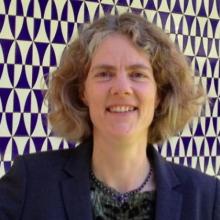
Helma Dik works on Ancient Greek linguistics and digital humanities. She has published on word order and pragmatics in Ancient Greek. Her interests in Greek linguistics and digital humanities find a common focus in various digital projects: perseus.uchicago.edu, where researchers, but also students, teachers, and any other readers of Greek can explore Greek and Latin texts with the help of PhiloLogic, textual database software developed at the University of Chicago. In addition, with students and alumni, Dik has developed logeion.uchicago.edu, a wide-ranging collection of Greek and Latin dictionaries. Dik is Associate Professor in the Department of Classics at the University of Chicago.
Ahmet Dursun’s work focuses on computer-assisted language teaching, testing research and practice, and test validation and has appeared in multiple peer-reviewed journals, edited volumes, and books. He is the Director of the Office of Language Assessment, where he is responsible for researching, developing, and managing the University of Chicago’s language assessment programs. He is co-founder of the “Language Pedagogy Innovation Initiative (LPII)” at the University of Chicago and “Transforming Language Instruction” program sponsored by the Andrew W. Mellon Foundation where he has been designing and leading workshops in second language assessment and pedagogy.
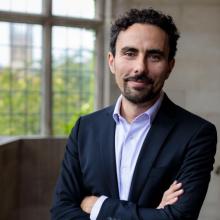
Ahmed El Shamsy is an intellectual historian of Islam, researching forms of literacy, the history of the book, Islamic law, and theology. He is the author of The Canonization of Islamic Law (Cambridge University Press, 2013), and Rediscovering the Islamic Classics (Princeton University Press, 2020). El Shamsy is Professor and Chair in the Department of Near Eastern Languages and Literatures at the University of Chicago.
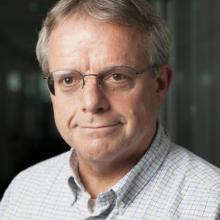
Christopher Faraone focuses his research on ancient Greek poetry, religion and magic—topics about which he has spoken and published extensively. His latest book is The Transformation of Greek Amulets in Roman Imperial Times (University of Pennsylvania Press, 2018), which was described by one reviewer as “elegantly produced” and “seminal for future study.” He founded UChicago’s Center for the Study of Ancient Religions, which he directed from 2008 to 2018. Faraone is the Edward Olson Professor in the Department of Classics and the College at the University of Chicago.
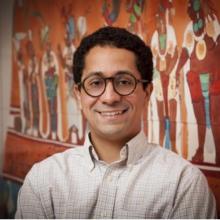
Edgar Garcia is a poet and scholar of the hemispheric cultures of the Americas. His most recent book, Emergency: Reading the Popol Vuh in a Time of Crisis (University of Chicago Press, 2022), is a collection of nine essays that show what this foundational creation story of the Indigenous Americas (the Popol Vuh) has to teach people about the relation between emergency and emergence. His scholarship and poetry are likewise inquiries into the relation between crisis and creativity or world creation—often experimenting with literary and disciplinary form to bring ideas and feelings to life. His other books include Signs of the Americas: A Poetics of Pictography, Hieroglyphs, and Khipu (University of Chicago Press, 2020) and Skins of Columbus: A Dream Ethnography (Fence Books, 2019). Garcia is Associate Professor in the Creative Writing Program in the Department of English Language and Literature at the University of Chicago.
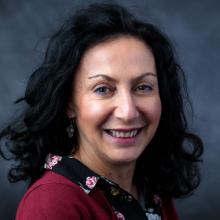
Anastasia Giannakidou studies linguistic meaning from formal semantic and philosophical perspectives. With background in ancient Greek philology and philosophy of language, she is interested in how meaning is represented in language, and what the relationship is between meaning and syntactic form. While her main focus is the Greek language, Giannakidou has also worked on Dutch, French, Italian, Korean, Mandarin, and Basque. She is a specialist on negation, polarity, definiteness, temporal semantics, and modality, and has written more than 150 articles and book chapters on topics in these areas. In her most recent book, Truth and Veridicality in Grammar and Thought (University of Chicago Press, 2021), Giannakidou and co-author Alda Mari develop a linguistic and philosophical framework for how judgments about truth are formed by speakers, and how beliefs and other attitudes differ from knowledge. She is the Frank J. McLoraine Professor in the Department of Linguistics, Director of the Center for Hellenic Studies, and Co-Director of the Center for Gesture, Sign, and Language at the University of Chicago.
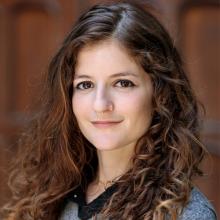
Ella Karev is a social and economic historian of the Late and Ptolemaic periods in Egypt. Her research focuses on slavery, forced labor, and body modification as a part of the lived experience of slavery. More specifically, Karev's research explores the definition and social implications of enslavement in ancient contexts, with an overarching goal of humanizing and realizing the enslaved individuals of the past. She is a Postdoctoral Teaching Fellow and the BA Preceptor in the Department of Near Eastern Languages and Civilizations at the University of Chicago.
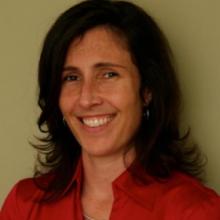
Darcy Lear has developed and taught courses, which include a survey course, Spanish for the Professions, and a course for the UChicago Law School. Her books include the pedagogical guide, Integrating Career Preparation into Language Courses (Georgetown University Press, 2019) and the introductory Spanish textbook, Conéctate with Grant Goodall (McGraw-Hill, 2022). Lear is the Languages for Specific Purposes Program Coordinator at the University of Chicago Language Center and Office of Language Assessment.
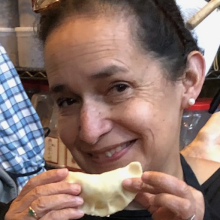
Maria Cecilia (Nené) Lozada researches Spanish-speaking communities in Chicago, examining the history of Pilsen, La Villita, and Humboldt Park. She identifies demographic and language trends, the effects of gentrification, festivities, and gastronomy. Lozada is the Co-Director of the Spanish Language program and Senior Instructional Professor in the Department of Romance Languages and Literatures at the University of Chicago.
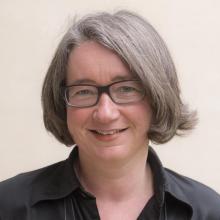
Christine Mehring works on modern and contemporary art. Her research, writing, and teaching focus on abstraction, particularly the ways in which non-mimetic forms, colors, and non-traditional materials come to signify in relation to specific historical contexts; postwar European art, especially the impact of World War II and the transformation from an international art world to a global one; and the cross-overs between art and design. Mehring also analyzes photography and the relations between old and new media, including their convergences with histories and practices of abstract art. She is now at work with Lisa Zaher on an edited volume concerning Wolf Vostell’s use of concrete and the conservation of Concrete Traffic. She is also completing a book with IIT architectural historian Sean Keller on the art and architecture of the Munich Olympics, addressing their multiple significances for West German and North American cultures. Mehring is the Mary L. Block Professor in the Departments of Art History and Visual Arts at the University of Chicago and Adjunct Curator at the Smart Museum of Art.
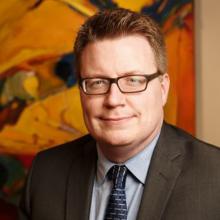
As the Associate Provost and Executive Director of UChicago Arts, Bill Michel works to advance the creative work of students and faculty and support a vibrant set of public arts programs and arts collaboration across the University and Chicago. As the inaugural Executive Director of the Logan Center, Bill works with academic departments, University-presenting organizations, and artists and organizational partners on the South Side and throughout the city to ensure that the Logan Center is a home of artistic practice that contributes to Chicago’s cultural scene, while encouraging creativity in the next generation. Off campus, Bill serves on City of Chicago’s Cultural Advisory Council, the South Side Community Art Center Board and About Face Theatre Honorary Board. Bill is a graduate of The College and the Booth School of Business at The University of Chicago.
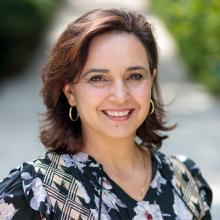
Verónica Moraga designed and teaches the course Latinx and Spanish Language for Social Workers. Her current research and practice include curriculum for language for specific purposes, content-based strategies for language instruction, community-based learning, and interculturality. She is Assistant Instructional Professor in the Department of Romance Languages and Literatures and has been teaching at the University of Chicago since 2008.
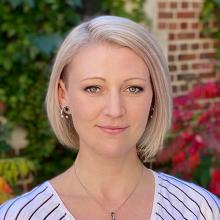
Kiersten Neumann’s research is grounded in theoretical approaches to ancient art, with a focus on sensory experience and visual culture of the first millennium BCE. Her many articles include topics of ritualized practice, built environments, and sensory experience in Assyria and Persia. Additionally, Neumann curates OI museum exhibitions, including “Persepolis: Images of an Empire” (2015–2017). Her current book projects include a volume on the sensory experience of the Neo-Assyrian Temple and The Routledge Handbook of the Senses in the Ancient Near East (Routledge, 2021), co-edited with Allison Thomason. Neumann is Curator of the Oriental Institute Museum and Research Associate at the Oriental Institute, and Lecturer in the Department of Art History at the University of Chicago.
Two tours of the Oriental Institute Museum, a research organization and museum devoted to the study of ancient Near East at 1155 E. 58th Street, Chicago, IL 60637.
Tour 1: 12:15 to 1:15 p.m. Each tour leader of two will host a group of 20 people maximum or 40 people in total.
Tour 2: 1:30 to 2:30 p.m. Each tour leader of two tour leaders will host a group of 20 people maximum or 40 people in total.
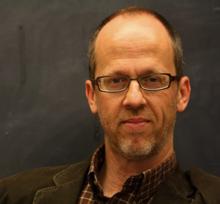
Much of William Nickell's work has focused on media studies in Russia and the USSR. His book, The Death of Tolstoy: Russia on the Eve, Astapovo Station, 1910 (Cornell University Press, 2010), uses media coverage of the dramatic story of Tolstoy’s death as a lens for examining Russian culture between the Russian revolutions of 1905 and 1917. Since 2016, he has been teaching a course called Media and Power in the Age of Putin and Trump, and his talk for Humanities Day will be drawn from Russian Media at War, a University of Chicago course based entirely on current events. Nickell is Associate Professor in the Department of Slavic Languages and Literature at the University of Chicago.
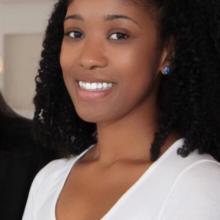
Kaneesha Parsard’s research concerns legacies of slavery and emancipation in the Caribbean and broader Americas. Her first book project, “An Illicit Wage,” tracks 19th- and 20th-century Caribbean cultural repertoires that cast doubt on wage labor as the condition of freedom. Her scholarship can be found in the American Quarterly, Small Axe, and the South Atlantic Quarterly. Parsard is Assistant Professor in the Department of English Language and Literature, affiliate faculty at the Center for the Study of Race, Politics, and Culture, and the Center for the Study of Gender and Sexuality, and a member of the Committee for Southern Asian Studies at the University of Chicago.
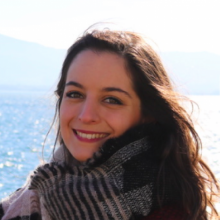
Claudia Quevedo-Webb’s focus on language pedagogy drives her to learn new technologies, methodologies, and frameworks to implement in her language and culture classes. She is Assistant Instructional Professor in Spanish, the co-director of the virtual reality in Spanish and Portuguese project, and the co-director of DEI-SLT, an open educational resource website that offers support to educators who want to bridge language teaching and social justice, in the Department of Romance Languages and Literatures at the University of Chicago.
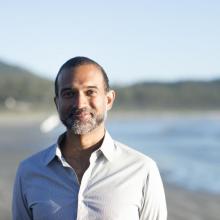
Srikanth Reddy’s latest book of poetry, Underworld Lit (Wave Books, 2020), was a finalist for the Griffin International Poetry Prize, the Poetry Society of America’s Four Quartets Prize, and a Times Literary Supplement “Book of the Year” for 2020. His writing has appeared in Harper’s, The Guardian (UK), The New York Times, Poetry, and numerous other venues. The recipient of fellowships from the Creative Capital Foundation, the Guggenheim Foundation, and the National Endowment for the Arts, Reddy is Professor in the Program of Creative Writing in the Department of English Language and Literature at the University of Chicago, where he edits the Phoenix Poets book series at the University of Chicago Press.
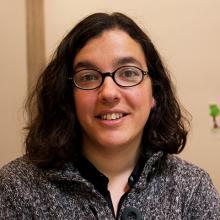
Na'ama Rokem studies modern Jewish literature and intellectual history, focusing especially on German-Jewish and Hebrew literature, and on the cultural history of the Zionist movement. She is interested in bilingualism, self-translation, and language ideology, and is a member of the Neubauer research project on language revival and reform movements across the Middle East in the early 20th century. Her first book is Prosaic Conditions: Heinrich Heine and the Spaces of Zionist Literature (Northwestern University Press, 2013), and Roken is currently completing a second book about a network of letters that cross between German and Hebrew and span the 20th century, with chapters on Franz Kafka, Yehuda Amichai, Hannah Arendt, and Paul Celan, among others. She is Associate Professor in the Department of Near Eastern Languages and Civilizations at the University of Chicago.
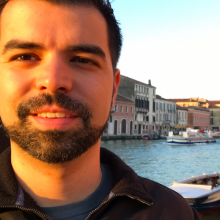
Juliano Saccomani has experience carrying out projects in foreign language in multiple contexts. He is the editor-in-chief of Revista Vaeranda at the University of Chicago, a tool for instructors and students to make their work public, experimenting with publishing different forms of media. Saccomani is Assistant Instructional Professor in the Department of Romance Languages and Literatures at the University of Chicago.
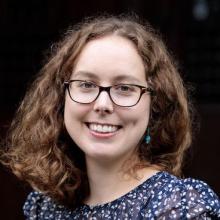
Sophie Salvo is a scholar of German literature and intellectual history who focuses on gender studies. Her current book project, “Articulating Difference: Sex and the Study of Language in the Long Nineteenth Century,” investigates the importance of ideas about sex and gender in the history of linguistics and the philosophy of language. Her writing has also appeared in MLN and The Germanic Review. At the University of Chicago, Salvo is Assistant Professor in the Department of Germanic Studies and the College.
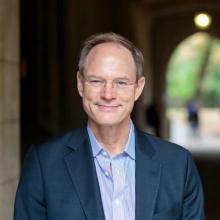
Haun Saussy’s work focuses largely on classical Chinese literature in a broad comparative context of rhetoric and intellectual history. Among his books written since coming to the University of Chicago are The Making of Barbarians: China in Multilingual Asia (Princeton University Press, 2022), Are We Comparing Yet: On Incomparablity, Standards, and Justice? (Bielefeld University Press, 2019), Translation as Citation: Zhuangzi Inside Out (Oxford University Press, 2017), and The Ethnography of Rhythm: Orality and Its Technologies (Fordham University Press, 2016). He is also a translator from Chinese, French, and Italian, and the editor of Partner to the Poor: A Paul Farmer Reader (University of California Press, 2010). Since 2011, Saussy has been University Professor at the University of Chicago.
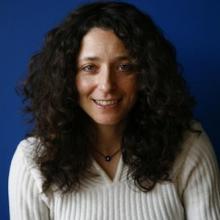
Jennifer Scappettone works at the confluence of the literary, visual, and scholarly arts, focusing on the way language shapes our relation to built and natural environments under the anthropocene. She is the author of the critical study Killing the Moonlight: Modernism in Venice (Columbia University Press, 2016) and editor and translator of Locomotrix (University of Chicago Press, 2012), devoted to the work of the poet-refugee from Fascist Italy Amelia Rosselli. Recent poetry volumes include The Republic of Exit 43 (Small Press Distribution, 2016) and Belladonna Elders Series: Poetry, Landscape, Apocalypse with Etel Adnan and Lyn Hejinian (Small Press Distribution, 2009). She has collaborated on performances responding to sites ranging from Fresh Kills Landfill to the Janiculum Hill. She is Associate Professor in the Program of Creative Writing and Departments of English Language and Literature and Romance Languages and Literatures at the University of Chicago.
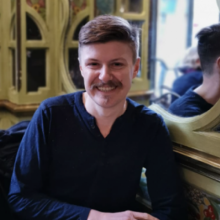
Colin Shelton’s scholarly work applies insights from Second Language Acquisition to the teaching and learning of ancient languages. He has also published work about ancient Roman etymologizing and the semantics of Latin wordplay. His current projects focus on developing teaching materials to promote extensive reading in Latin and Ancient Greek, and to help ancient language teachers incorporate communicative approaches and multiliteracies teaching more easily into their repertoire. Shelton is Language Program Coordinator in the Department of Classics at the University of Chicago.
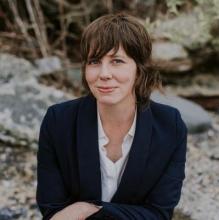
Stephanie Soileau is the author of the short story collection Last One Out Shut Off The Lights (Little Brown & Co., 2020) and the novel Should The Waters Take Us forthcoming from Little, Brown & Co. Her work has also appeared in Glimmer Train, Oxford American, Ecotone, Tin House, New Stories from the South, and other journals and anthologies, and has been supported by fellowships from the Wallace Stegner Fellowship Program at Stanford University, the Camargo Foundation, the National Endowment for the Arts, and the Fine Arts Work Center in Provincetown. She is Assistant Professor of Practice in the Arts in the Creative Writing Program in the Department of English Language and Literature at the University of Chicago.
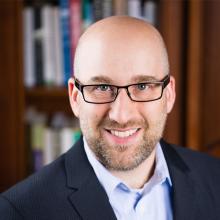
Mark Sorkin is the Associate Director of Communications at the Neubauer Collegium for Culture and Society, an interdisciplinary research center at the University of Chicago. Before joining the Neubauer Collegium, he worked on the communications staff at the University of Chicago Harris School of Public Policy, where he launched and edited the school’s biannual magazine and oversaw a comprehensive redesign of the school’s website. Prior to that, he spent more than a decade editing and writing for national and regional magazines, including The Nation, Rolling Stone, Details, and Chicago.

Jessica Stockholder works at the intersection of painting and sculpture. Her work sometimes incorporates the architecture in which it has been conceived, blanketing the floor, scaling walls and ceiling, and spilling out of windows, through doors, and into the surrounding landscape. Stockholder has exhibited widely in North America and Europe at such venues as Dia Art Foundation, New York City; Centre Pompidou in Paris; and the Open Air Museum in Belgium. Her work is represented in various collections, including the Art Institute of Chicago, Albright-Knox Art Gallery, Whitney Museum of American Art, and Los Angeles Contemporary Museum of Art. Stockholder is the Raymond W. and Martha Hilpert Gruner Distinguished Service Professor in the Department of Visual Arts at the University of Chicago.
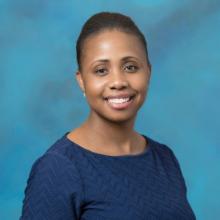
Gerdine M. Ulysse’s research focuses on language variation and language attitudes and factors influencing multilingualism and literacy development in Creolophone communities. She is Assistant Instructional Professor of French and Kreyòl in the Department of Romance Languages and Literatures at the University of Chicago.
The Reva and David Logan Center for the Arts is hosting two times for guided tours of Passing Through: Artists from DoVA 2012–2021. Registrants should meet their tour guides at Logan Center, 915 E. 60th Street, Chicago, IL 60637.
Tour 1 at Midday: 12:15 to 1:15 p.m.
Tour 2 during Session 2: 1:30 to 2:30 p.m.
Smart Museum is hosting two guided tours of Monochrome Multitudes.
Tour 1: 12:15 to 1:15 p.m. Led by Graduate Student Mary Huber (MAPH 2022)
Tour 2: 1:30 to 2:30 p.m. Led by Graduate Student Claire Rich (MAPH 2023)
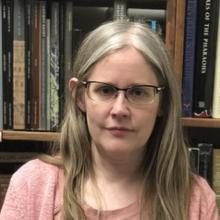
Tasha Vorderstrasse is the University and Continuing Education Program Coordinator at the Oriental Institute of the University of Chicago. She received her PhD in Near Eastern archaeology from the University of Chicago in 2004. Her work forcuses on understanding the identity of past communities through archaeological and textual evidence as well as the interconnections between different regions. She administers and teaches in the OI adult education program, and also does teacher workshops and tours of the OI Museum for UChicago students and other groups on a variety of topics from post-colonialism and the OI to legal history, medicine, and queens and princesses in the ancient world.
Two tours of the Oriental Institute Museum, a research organization and museum devoted to the study of ancient Near East at 1155 E. 58th Street, Chicago, IL 60637.
Tour 1: 12:15 to 1:15 p.m. Each tour leader of two tour leaders will host a group of 20 people maximum or 40 people in total.
Tour 2: 1:30 to 2:30 p.m. Each tour leader of two tour leaders will host a group of 20 people maximum or 40 people in total.
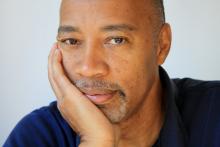
Kenneth W. Warren specializes in 19th- and 20th-century American and African American literature. The author of Black and White Strangers: Race and American Literary Realism (University of Chicago Press, 1993), So Black and Blue: Ralph Ellison and the Occasion of Criticism (University of Chicago Press, 2003), and What Was African American Literature? (Harvard University Press, 2010), Warren has also edited and written an introduction to Upton Sinclair’s The Jungle for the Norton Library (2022). He is co-editor of Renewing Black Intellectual History: The Material and Intellectual Foundations of African American Thought (Routledge Taylor & Francis Group, 2009). Warren is the Fairfax M. Cone Distinguished Service Professor in the Department of English Language and Literature at the University of Chicago.

